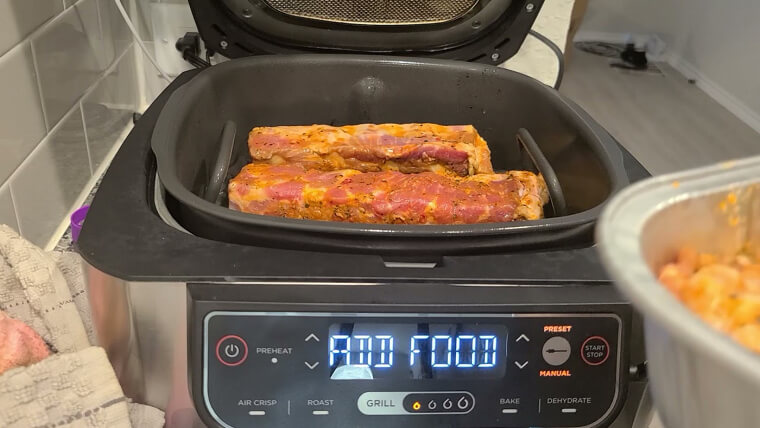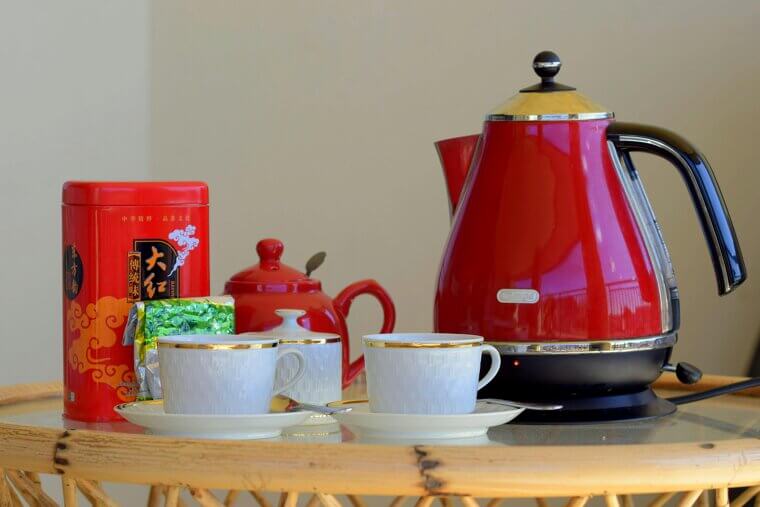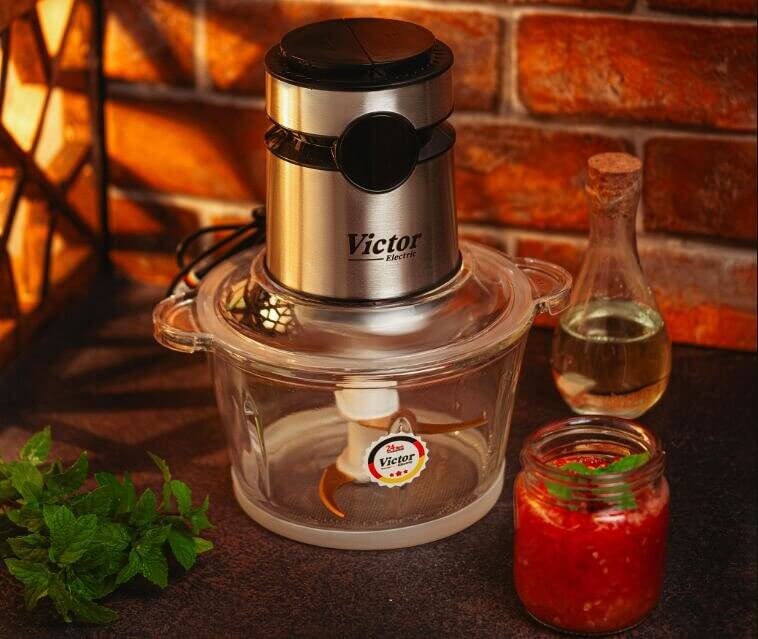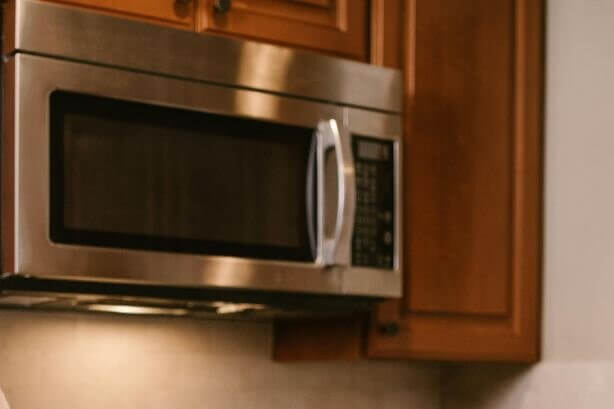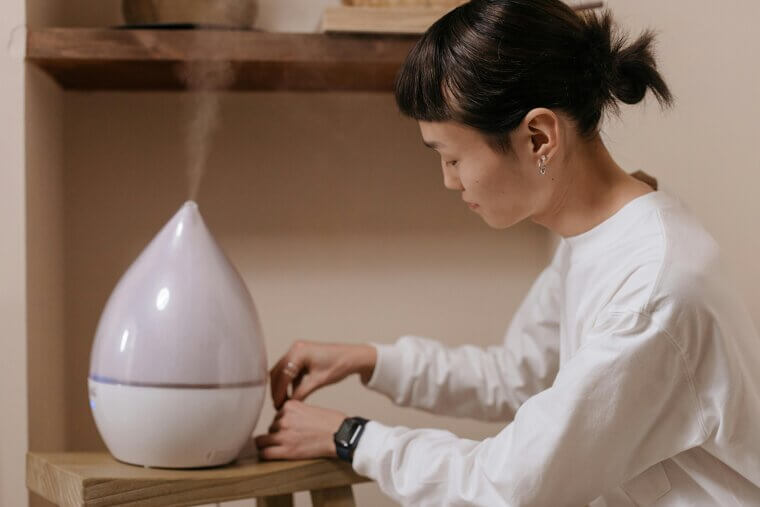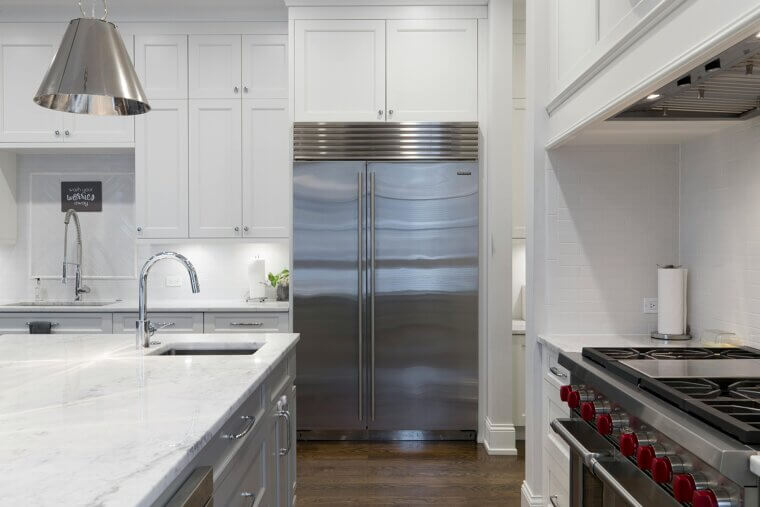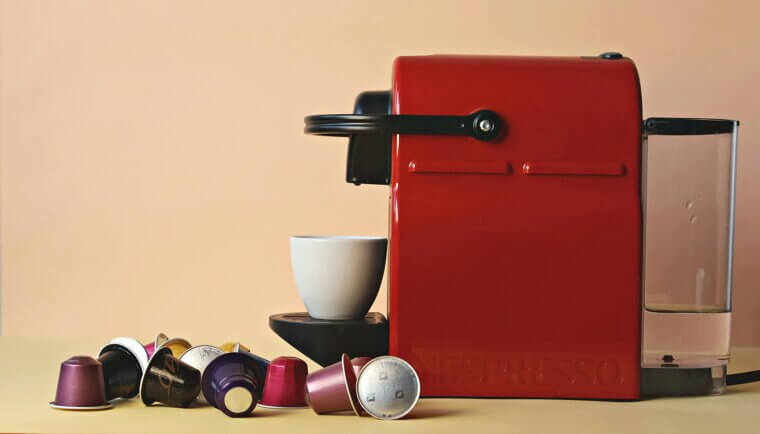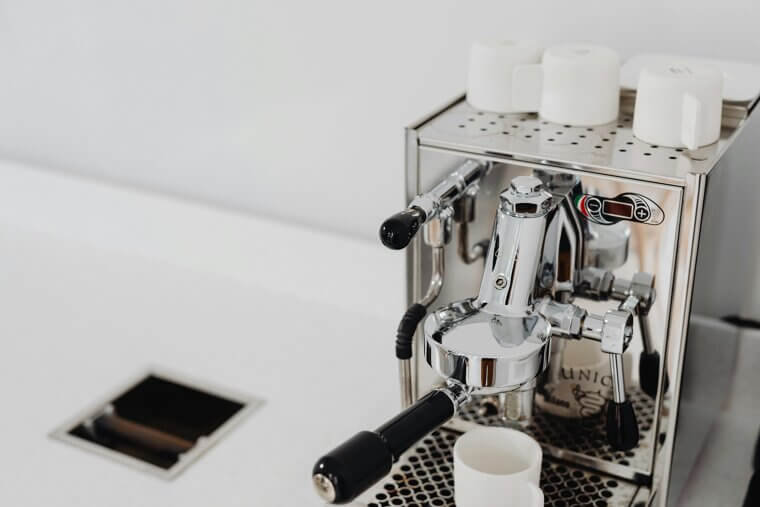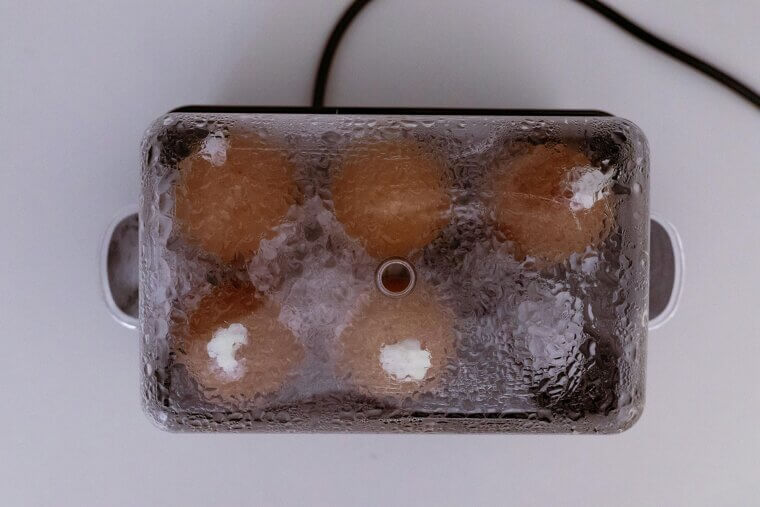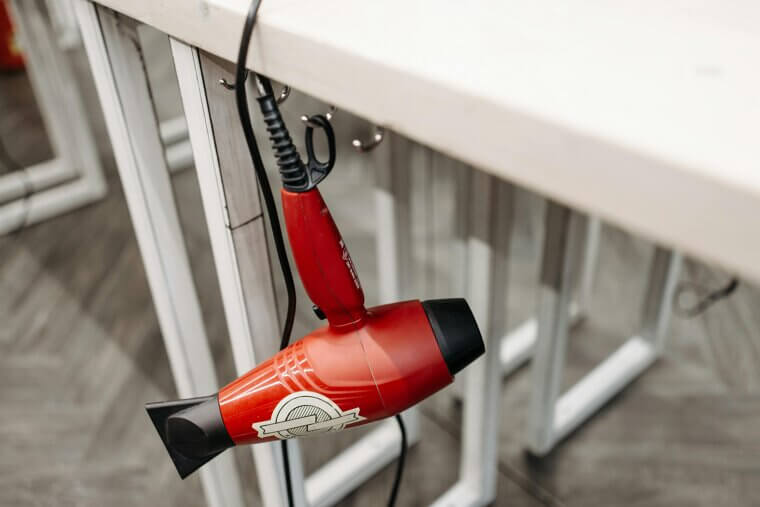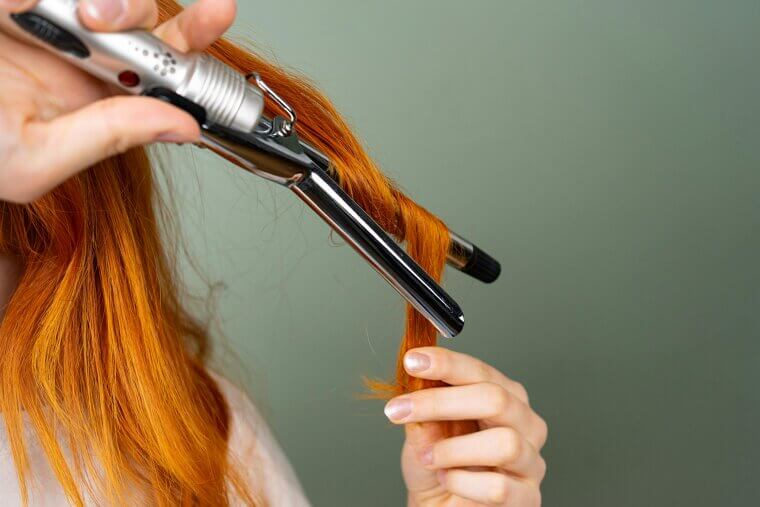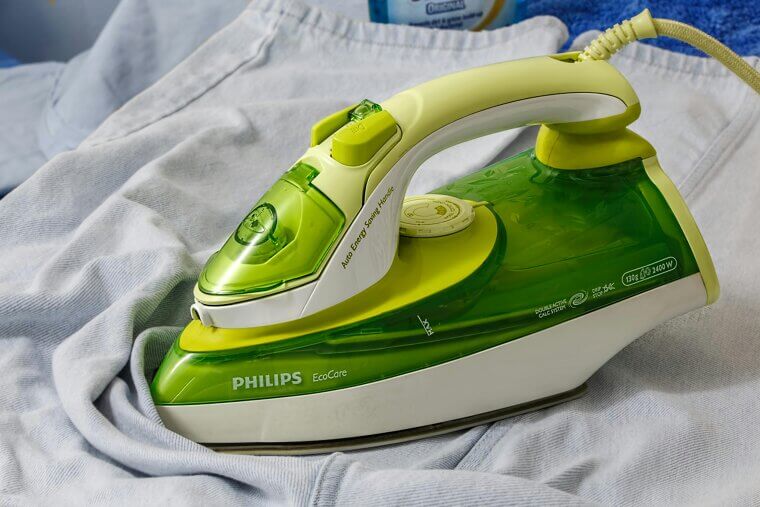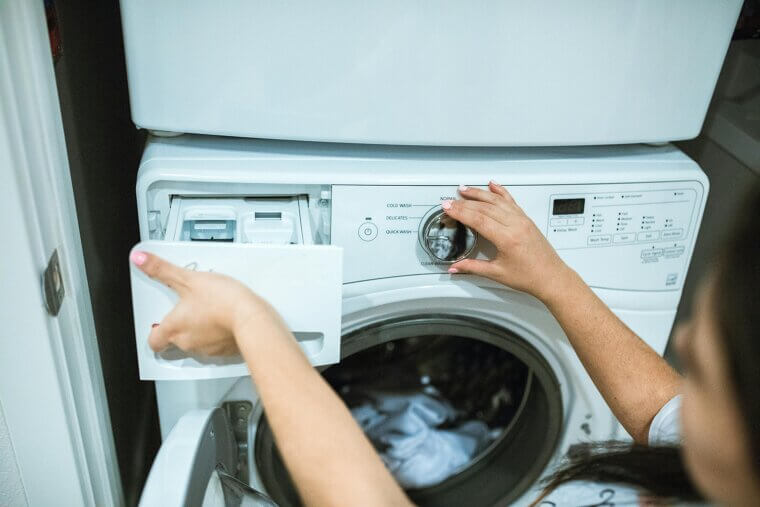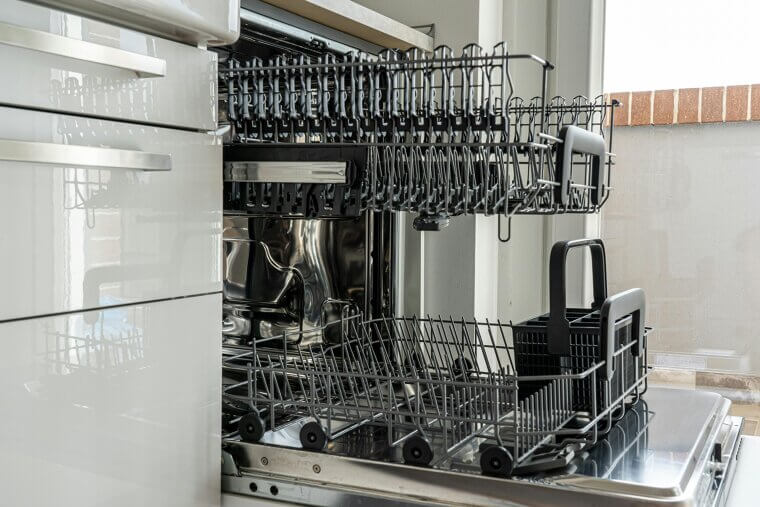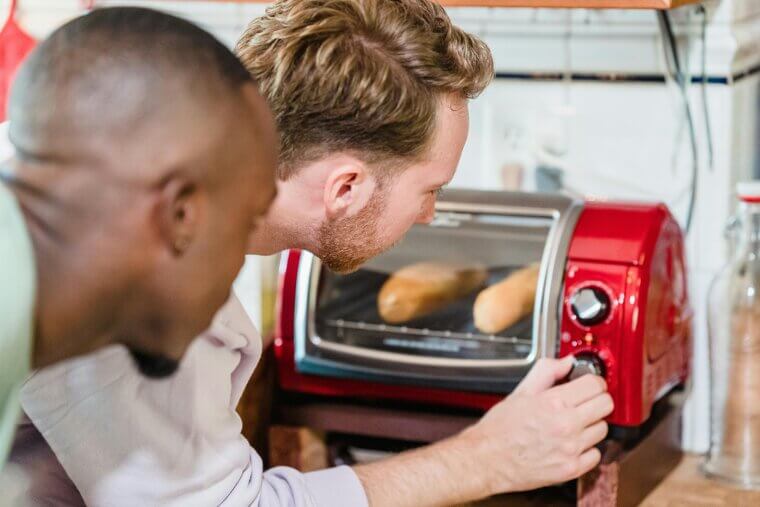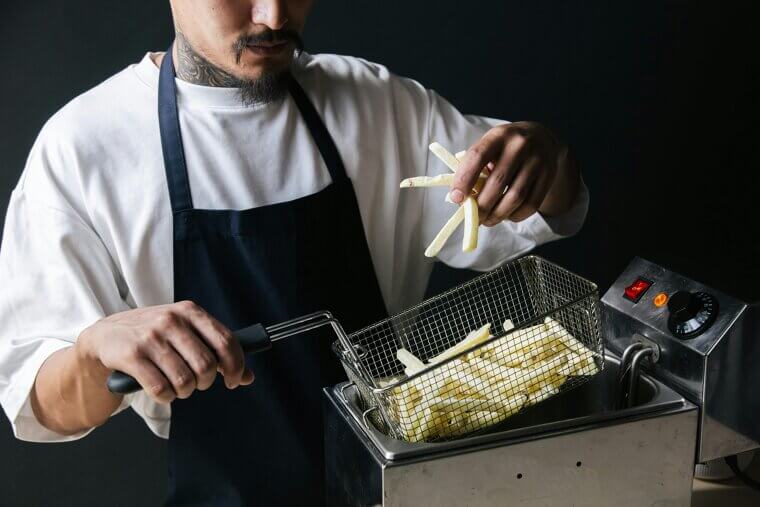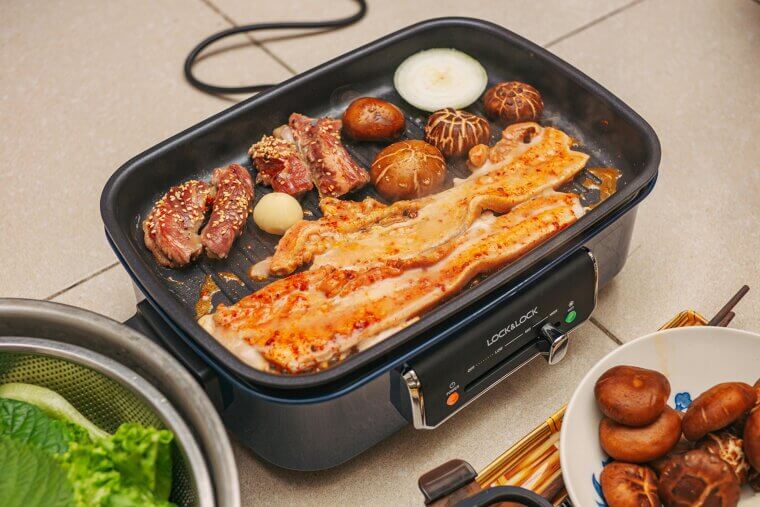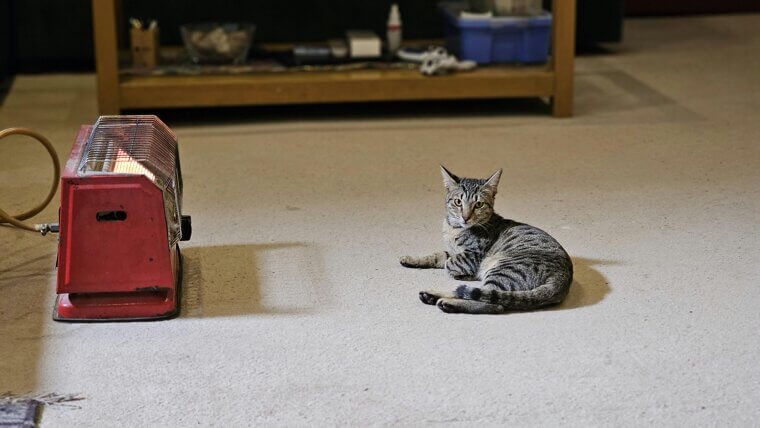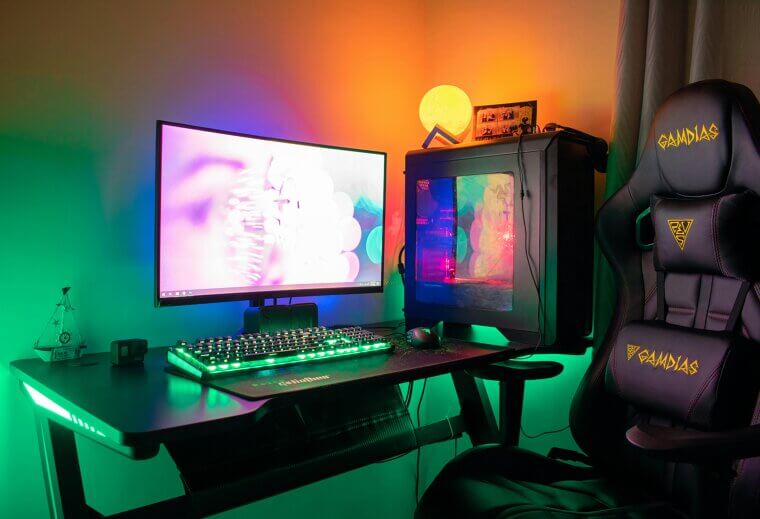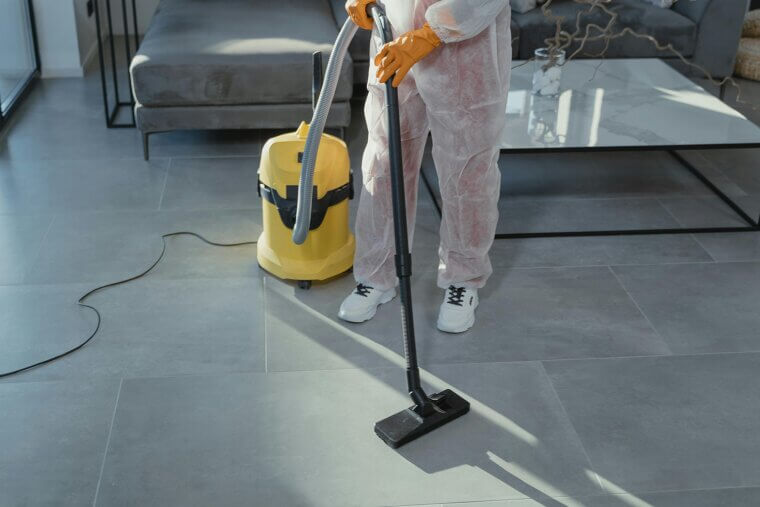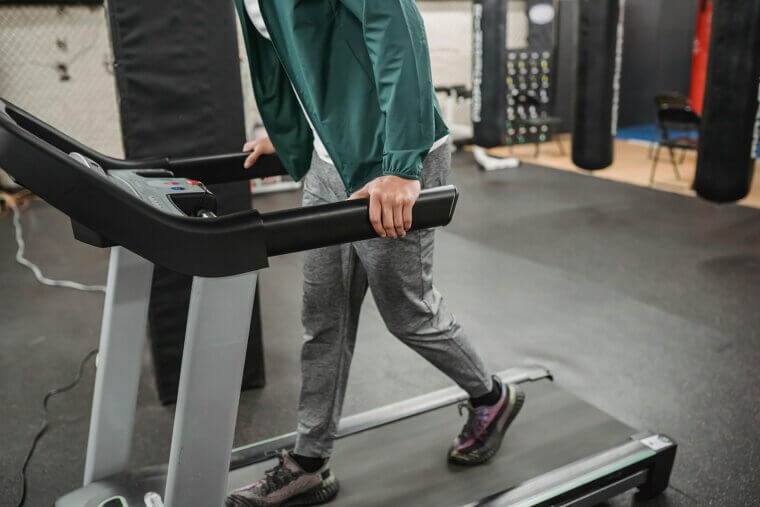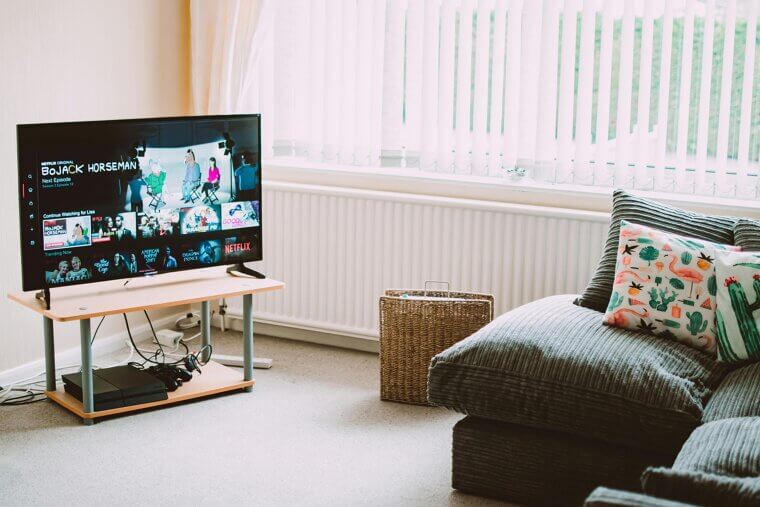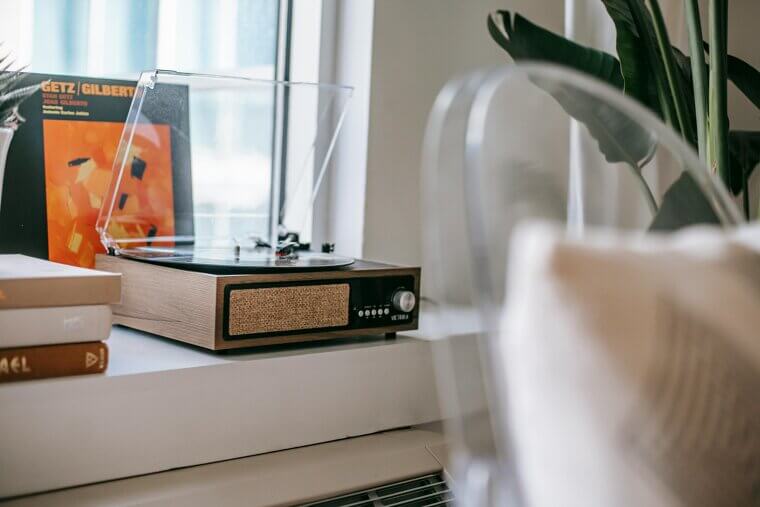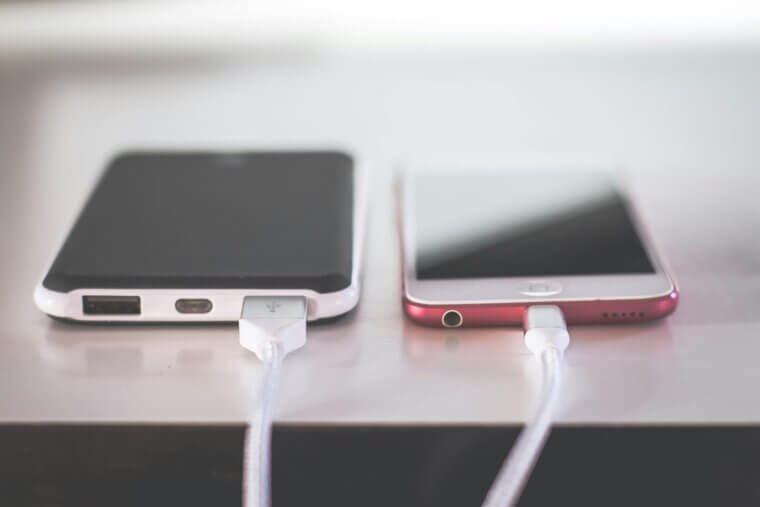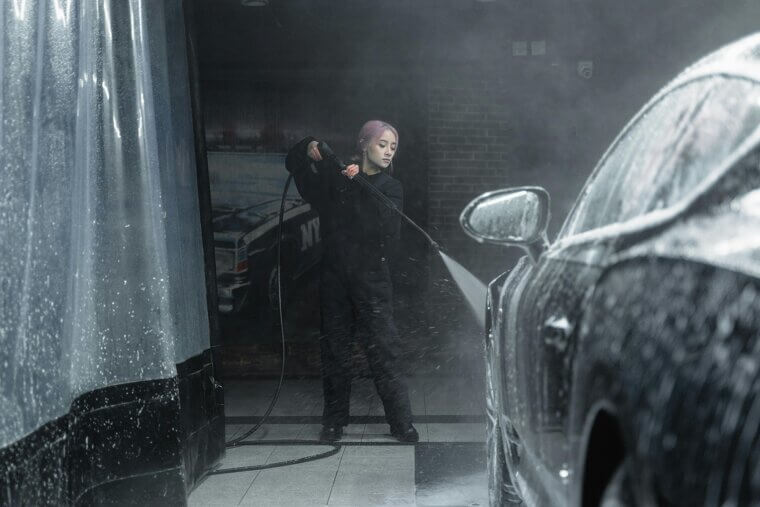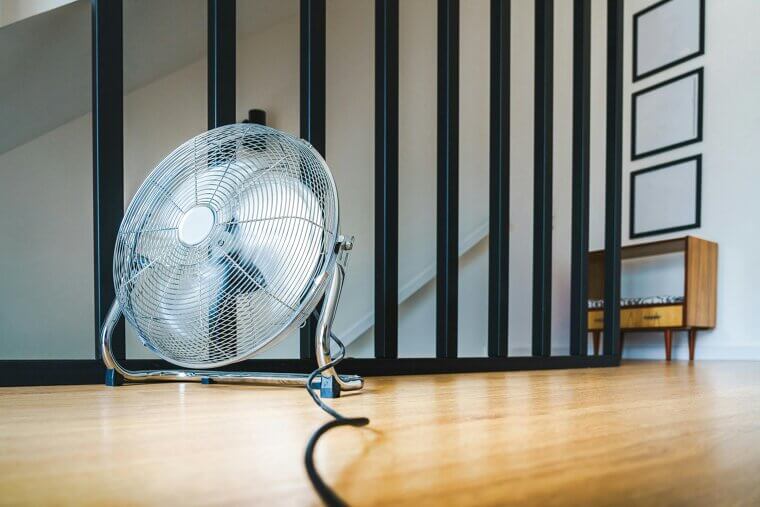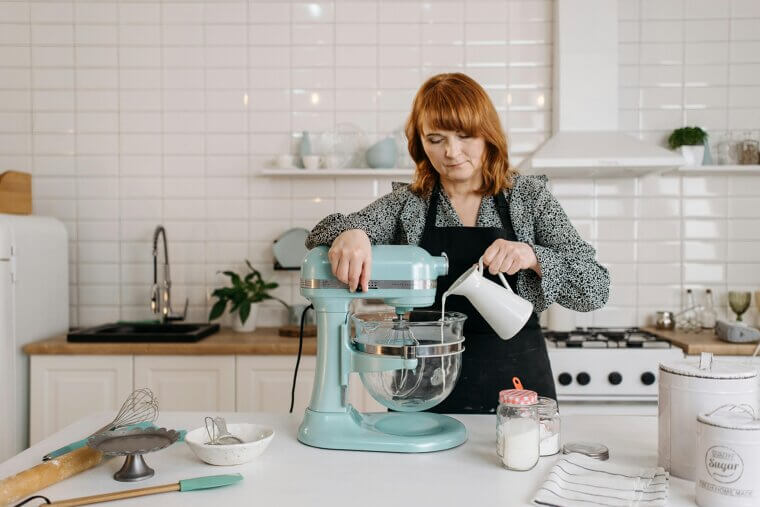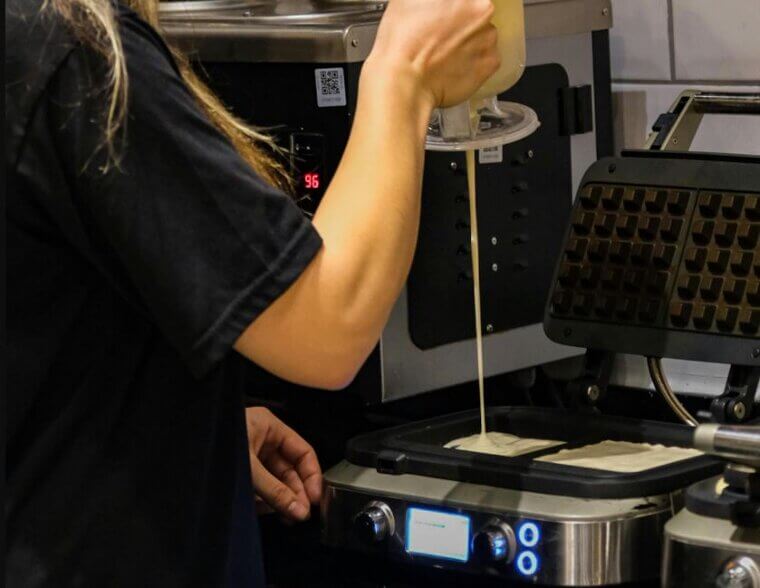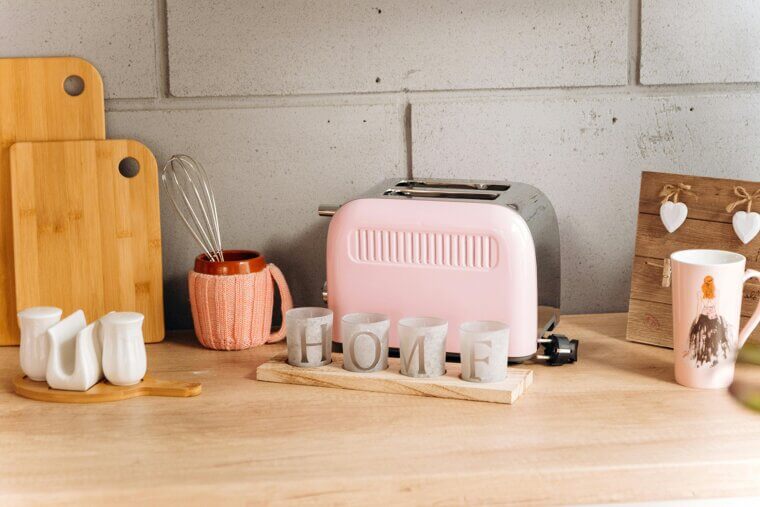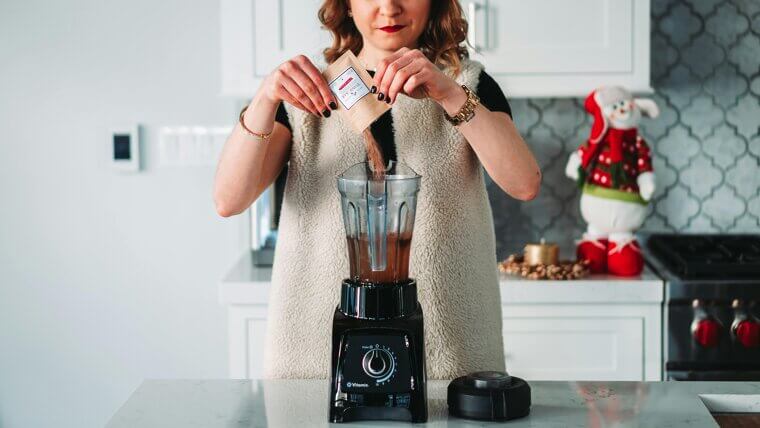Take These Devices Out of Extension Cords or Surge Protectors Immediately, an Electrician Explains
Many people unknowingly plug the wrong devices into extension cords and surge protectors, creating serious fire and electrical hazards in their homes. Electricians warn that some appliances draw too much power or interfere with surge protection, making them unsafe to share outlets with other gadgets. If you rely on extension cords for convenience, it’s time to double-check what’s plugged in before it causes costly or dangerous damage.
An electrician reveals the devices you should never plug into extension cords or surge protectors and why doing so could be a hidden fire hazard in your home.
Electric Kettle
Electric kettles are essential kitchen appliances, beloved for their convenience in boiling water rapidly. However, many people are unaware that plugging an electric kettle into an extension cord or surge protector is a safety hazard. Due to their high power consumption, kettles can overheat extension cords, leading to potential fires. Additionally, using them with surge protectors can interfere with the device's functionality. Ensuring they're plugged directly into a wall outlet can prevent dangerous situations.
To keep your home safe, always connect high-power appliances like electric kettles directly to wall outlets. This simple precaution can prevent electrical issues and ensure efficient operation.
Blender
Blenders are commonplace in many kitchens, but they can be surprisingly hazardous when plugged into extension cords or surge protectors. These powerful appliances draw significant power, which can lead to overheating and pose a fire risk if not connected directly to a wall outlet. Electricians warn that their motors can cause surges, potentially damaging other devices sharing the circuit. Always prioritize safety by plugging blenders directly into a dedicated outlet.
To maintain safety, always plug your blender directly into a wall outlet. This simple step can prevent electrical hazards and ensure your kitchen remains safe and functional.
Microwave
A microwave is a high-wattage appliance that should never be plugged into an extension cord or surge protector. These devices are designed to handle much lower power loads and can overheat when connected to a microwave. This creates a significant fire hazard, risking damage to both your appliance and home. Always plug microwaves directly into a wall outlet to ensure safe operation. Prioritize safety by considering their energy demands.
Ensure your home’s safety by avoiding extension cords and surge protectors with high-wattage appliances. Protect your devices and reduce fire risks by plugging directly into wall outlets.
Humidifier
Humidifiers should never be plugged into extension cords or surge protectors. These devices draw significant power and can overheat, leading to potential fire hazards. Running them continuously can cause a buildup of heat, especially when shared with other devices. This increases the risk of the cord failing or the surge protector being unable to handle the load. Direct connection to a wall outlet ensures safe operation and prevents dangerous situations.
Ensuring your humidifier is directly connected to a wall outlet can prevent power issues. This simple change enhances safety and efficiency, protecting your home from unnecessary risks.
Refrigerator
Refrigerators should never be plugged into an extension cord or surge protector. These appliances require a consistent and high level of power to maintain the correct temperature for food storage. Using an extension cord can cause voltage drops, leading to inefficient cooling and potential damage. Moreover, the compressor may draw excessive power, risking overheating and electrical fires. It's crucial to plug refrigerators directly into a wall outlet to ensure safety and efficiency.
Keeping your refrigerator directly connected to a wall outlet is vital. Avoid using extension cords to prevent any electrical mishaps or performance issues with this essential appliance.
Coffee Makers
Coffee makers should not be plugged into extension cords or surge protectors due to their high power demand. These appliances can overload circuits, risking electrical fires or damaging other connected devices. Most coffee makers require a significant amount of energy to heat water quickly, making them unsuitable for extension cords. Using them with improper power sources compromises safety and efficiency. Always plug coffee makers directly into wall outlets for optimal performance.
To avoid potential hazards, ensure your coffee maker is plugged directly into a wall outlet. This practice prevents overloading and reduces the risk of electrical issues that can lead to fires.
Air Conditioner
Air conditioners are essential for comfort but should never be plugged into extension cords or surge protectors. These units draw a significant amount of power, which can overload shared outlets, leading to overheating and potential fire hazards. Instead, they should be connected directly to a dedicated wall outlet to ensure safety and efficiency. Trusting extension cords with such high-demand appliances risks damaging not only the devices but also your home’s wiring.
By ensuring air conditioners are directly plugged into wall outlets, you prevent hazardous situations. Prioritize safety and protect your home while enjoying cool comfort.
Espresso Machine
Espresso machines are high-wattage appliances that can overload extension cords or surge protectors. They draw substantial power, especially during the brewing process, risking overheating and potential fire hazards. Electricians advise plugging such machines directly into a wall outlet. Sharing an outlet with other devices can compromise the surge protector's effectiveness and lead to tripped circuits. Prioritize safety by ensuring your espresso machine is correctly connected.
For the safety of your home, ensure this high-energy device is plugged directly into a dedicated wall outlet. Protect your appliances and avoid unnecessary risks by following this essential advice.
Rice Cooker
Rice cookers are common kitchen appliances, but electricians warn against plugging them into extension cords or surge protectors. These devices draw significant power and can overheat cables not designed for high loads. Overheating can lead to melted insulation or even fires, especially if the extension cord isn't rated for high wattage. Always plug rice cookers directly into a wall outlet to ensure safety and prevent electrical hazards. Regular checks can help avoid potential risks.
Ensure your home is safe by plugging rice cookers directly into wall outlets. This simple step helps prevent electrical overloads and potential fire hazards, keeping your kitchen secure.
Egg Cooker
Egg cookers might seem harmless, but electricians advise keeping them off extension cords or surge protectors. These devices require a significant amount of power to heat quickly, leading to potential overloads. Overloading circuits can cause the extension cords to overheat, presenting a fire hazard. Additionally, surge protectors may not provide adequate safety for such high-power appliances. Ensuring these appliances have a direct wall outlet connection is essential for safety.
Remember, keeping appliances like egg cookers directly connected to wall outlets helps maintain safety. Protect your home by avoiding unnecessary risks with these high-powered gadgets.
Hair Dryer
A hair dryer should never be plugged into an extension cord or surge protector. These devices draw significant power, often exceeding the safe limits of such cords, leading to overheating and potential fire hazards. Electricians emphasize that high-wattage appliances like hair dryers need a dedicated wall outlet to operate safely. Using a surge protector with these appliances can also reduce its effectiveness, risking damage to other connected devices. Ensure your safety by plugging hair dryers directly into a wall outlet.
Always prioritize safety by checking how your devices are plugged in. Avoiding extension cords for hair dryers not only protects your home but also maintains the functionality of other gadgets.
Curling Iron
Curling irons are a common yet hazardous device when plugged into extension cords or surge protectors. These styling tools draw a significant amount of power to generate heat quickly, which can overload circuits. Overloaded circuits can lead to overheating, increasing the risk of fires in your home. Electricians stress that these high-power appliances should always be plugged directly into wall outlets. Ensuring proper usage can prevent dangerous situations.
Use your curling iron safely by plugging it directly into a wall outlet. This precaution helps prevent electrical hazards and keeps your home safe from potential fire risks.
Iron
An iron should never be plugged into an extension cord or surge protector. This household appliance draws a significant amount of power, which can easily overwhelm these devices. Overloading an extension cord can lead to overheating and potentially cause a fire hazard. Surge protectors are also not designed to handle the high wattage that irons require. For safety, always plug your iron directly into a wall outlet.
To ensure safety, always connect your iron directly to a wall outlet. This practice helps prevent electrical hazards and maintains the longevity of your appliances.
Washing Machine
Washing machines are powerful appliances that demand a high level of electricity to operate efficiently. Plugging them into an extension cord or surge protector can be a serious safety risk. These devices draw a substantial amount of power, potentially causing overheating and even fires. Surge protectors are not designed to handle such heavy loads, risking damage to both the device and the protector. Prioritize safety by plugging them directly into wall outlets.
To ensure safety, always connect large appliances like washing machines directly to wall outlets. This prevents dangerous electrical hazards and ensures the device functions correctly.
Dishwasher
Dishwashers must never be plugged into extension cords or surge protectors. These powerful appliances draw substantial power to heat water and run their motors. When connected improperly, they can overload circuits, posing fire risks and damaging the appliance or the electrical system. Extension cords and surge protectors are not designed to handle such heavy loads. Always plug your dishwasher directly into a wall outlet to ensure safety and efficiency.
Ensure you prioritize safety by plugging high-power appliances like dishwashers directly into wall outlets. Doing so reduces the risk of fires and keeps your home’s electrical system functioning optimally.
Toaster Ovens
Toaster ovens are popular for their convenience, but many people don't realize they can be a hazard when plugged into an extension cord or surge protector. These appliances draw significant power and can easily overload circuits, increasing the risk of overheating and fires. Electricians recommend plugging them directly into a wall outlet to ensure safe operation. By doing this, you protect your home from potential electrical dangers. Prioritize safety and prevent hazards.
By ensuring your toaster oven is plugged directly into a wall outlet, you reduce fire risks and maintain electrical safety. Don't compromise your home's security for convenience.
Deep Fryer
A deep fryer is a powerhouse in the kitchen but poses serious risks when plugged into extension cords or surge protectors. The high wattage it demands can easily overload these setups, leading to overheating and potential fires. Electricians stress that deep fryers should be directly plugged into a wall outlet to safely handle their power needs. Don’t compromise safety for convenience; keep this appliance away from power strips.
Ensure your deep fryer is directly connected to a wall outlet. Protect your home by following these safety guidelines, preventing electrical hazards and maintaining the integrity of your appliances.
Laptop Charger
Laptop chargers should never be plugged into extension cords or surge protectors. They draw significant power, which can overheat the wiring and pose a fire hazard. This risk is amplified when shared with other devices, putting your safety in jeopardy. Furthermore, electrical interference can also affect the charger’s efficiency, causing potential damage to your laptop. To ensure a safe environment, always plug laptop chargers directly into wall outlets.
Prioritize safety by avoiding extension cords and surge protectors for high-power devices like laptop chargers. Direct wall connections help prevent overheating and protect your valuable electronics from damage.
Electric Grills
Electric grills are convenient for indoor cooking but can pose significant risks if plugged into extension cords or surge protectors. These appliances draw substantial power, which can overload the circuit, leading to overheating and potential fires. Extension cords may not handle the high wattage, compromising safety. Surge protectors often cannot manage the fluctuating power demands, risking failure. For safe operation, always connect electric grills directly to a wall outlet.
To avoid dangerous electrical mishaps, make sure to prioritize safety when using electric grills. Plug them directly into a dedicated wall outlet to reduce risks.
Space Heater
Space heaters should never be plugged into extension cords or surge protectors. They draw a significant amount of power, which can easily cause overheating and potentially start a fire. This risk increases when there are multiple devices sharing the same circuit. An overloaded power strip can lead to melted wires or tripped breakers, posing a severe hazard. For safety, always plug space heaters directly into a wall outlet.
Protect your home by using space heaters with caution. Plug them directly into wall outlets to avoid potential hazards and ensure your electrical system remains safe.
PC Setup
Gaming PCs are often the centerpiece of a home office or entertainment setup, but they should never be plugged into extension cords or surge protectors. These powerful machines draw significant power, which can overload these devices, leading to overheating or even fire hazards. Additionally, some surge protectors may interfere with the PC’s power supply unit. It's crucial to plug gaming PCs directly into a wall outlet to ensure safe and efficient operation.
Avoiding such risks with your PC not only enhances safety but also improves device performance. Always prioritize direct wall connections to safeguard your setup.
Vacuum Cleaners
Vacuum cleaners are household essentials, but they shouldn’t be plugged into extension cords or surge protectors. These devices draw a significant amount of power, which can overload circuits and cause overheating. The heavy electrical demand can lead to dangerous scenarios, including potential fires. By plugging them directly into a wall outlet, you minimize risks and ensure optimal performance. Keep your home safe by checking where your vacuum is connected.
Always prioritize safety by using wall outlets for high-power appliances like vacuum cleaners. This simple step reduces the risk of electrical hazards, keeping your space secure and efficient.
Treadmills
Treadmills are high-power devices that must be plugged directly into a wall outlet. Using extension cords or surge protectors can lead to overheating due to the treadmill’s substantial energy consumption. This poses a serious fire risk in your home. Additionally, the constant power draw can overload circuits, reducing the lifespan of your equipment. Protect your investment and ensure your safety by connecting it properly. Avoid costly repairs or dangerous incidents.
Always plug treadmills directly into a wall. Their high power needs can cause overheating, leading to potential hazards. Prioritize safety by ensuring direct connections to avoid risks.
Printer
Printers are often plugged into extension cords or surge protectors for convenience, but this can be risky. They require a stable power source, as their power draw can vary significantly during use, especially when printing large documents. This fluctuating demand can overload extension cords and interfere with surge protection capabilities. Plugging printers directly into a wall outlet ensures they receive the consistent power they need, reducing the risk of electrical hazards.
For safety, connect your printer directly to a wall outlet. This prevents potential overloads and keeps your device functioning smoothly without risk of electrical issues or fire hazards.
Television
Televisions are often plugged into extension cords or surge protectors for convenience, but this practice can be risky. These devices draw significant power, which can overload the extension cord, increasing the risk of overheating and fire. Additionally, some TVs may interfere with the surge protector's effectiveness, leaving other connected devices vulnerable to power surges. Ensuring your TV is plugged directly into a wall outlet is crucial for safety and device longevity.
Avoid using extension cords for your TV setup. Plugging directly into a wall outlet is a safer choice, protecting your home and electronics from potential hazards.
Turntables
Turntables should never be plugged into an extension cord or surge protector, as electricians often warn. These devices can be sensitive to power fluctuations, which might not be adequately managed by simple surge protectors. Plugging them directly into a wall outlet ensures a more stable power supply, preventing potential damage. Additionally, power surges can interfere with their performance, causing skips or distortion. Keep your audio equipment safe by connecting them properly.
Ensure your turntable is powered safely by plugging it directly into a wall outlet. Protect your audio equipment from power inconsistencies and enjoy uninterrupted listening experiences.
Smartphones
Smartphones can be a hidden danger when plugged into extension cords or surge protectors. These devices, while seemingly harmless, can create potential fire hazards. Overloading a circuit with multiple gadgets increases the risk of overheating and sparks. Electricians emphasize that charging phones in designated wall outlets is safer. This precaution ensures that power draw remains consistent and prevents unexpected surges. Avoid unnecessary risks by choosing safer charging methods.
Ensuring your home’s safety involves understanding the power needs of each device. By plugging smartphones directly into wall outlets, you reduce unnecessary risks. Prioritize safety and protect your devices today.
Electric Keyboard
Electric keyboards are a staple for many musicians but can pose a risk when plugged into extension cords or surge protectors. These instruments often require consistent power to function properly, and using an inadequate power source may lead to voltage drops or surges. Such fluctuations can damage the keyboard's sensitive electronics. Additionally, they can cause overheating, increasing the risk of electrical fires. Always plug them directly into a wall outlet for safety.
Ensure your electric keyboard is safely powered by plugging it directly into a wall outlet. Avoid the risks associated with extension cords and surge protectors to protect your instrument and home.
Pressure Washers
Pressure washers draw considerable power to operate their high-pressure systems efficiently. Plugging them into extension cords or surge protectors can lead to overheating, posing a significant fire risk. The high energy demand exceeds the capacity of most extension cords, which aren't designed for such heavy-duty appliances. Additionally, surge protectors may not handle the electrical load, risking both the device and your safety. Always plug them directly into a dedicated outlet.
To ensure safety, always check your devices' power requirements before use. Heavy-duty appliances should have dedicated outlets. Prioritizing safety can prevent electrical hazards and extend appliance lifespan.
Fans
Fans are common household items that can seem harmless when plugged into extension cords or surge protectors. However, their fluctuating power demands can overburden these devices, creating potential fire hazards. The constant start and stop of fan motors can cause overheating, especially if the extension cord is undersized. Additionally, fans may interfere with the surge protector's ability to manage other connected electronics. Always plug fans directly into a wall outlet for safety.
To avoid electrical risks, ensure that fans and similar appliances are directly connected to wall outlets. This simple step can protect your home from unnecessary hazards.
Lawn Mowers
Lawn mowers, especially electric ones, should never be plugged into extension cords or surge protectors. These devices draw a significant amount of power, which can easily overload an extension cord, leading to overheating and potential fire hazards. Surge protectors are designed for smaller electronics and may not handle the power demand of lawn mowers. It’s crucial to plug these directly into a dedicated outdoor outlet to ensure safety.
Keep your electric lawn mower plugged directly into a proper outdoor outlet. This ensures safety and efficiency, preventing risks associated with overloading extension cords or surge protectors.
Stand Mixer
Stand mixers draw significant power, making them unsuitable for extension cords or surge protectors. These appliances can easily overload circuits, leading to potential fire hazards or electrical malfunctions. Electricians advise plugging them directly into wall outlets to ensure safety and maintain efficiency. Over time, using an extension cord may also reduce the mixer’s performance due to inconsistent power supply. Protect your kitchen and appliances by following these guidelines for a safer environment.
Prioritizing direct wall outlets for high-power appliances like stand mixers is crucial. Ensuring proper connections reduces risks, safeguarding both your devices and home from potential electrical issues.
Waffle Maker
Waffle makers are popular kitchen devices, but they can pose a risk when plugged into extension cords. These appliances draw significant power, which can lead to overheating and potential electrical fires if the cord isn't rated for high wattage. Electricians advise plugging waffle makers directly into a wall outlet to ensure safety. Overloading a surge protector with a waffle maker can also reduce its effectiveness, putting other connected devices at risk.
For waffle lovers, ensuring your appliance is safely plugged in is essential. Keep your kitchen safe by avoiding extension cords for high-wattage devices like waffle makers.
Toaster
Many homeowners love the convenience of plugging their toaster into an extension cord or surge protector, but electricians warn against it. Toasters draw significant power, often exceeding the safe limits of these devices. This can lead to overheating, increasing the risk of electrical fires. Surge protectors may not handle the high wattage effectively, compromising their functionality. Always plug a toaster directly into a wall outlet to ensure safety in your kitchen.
Avoid using extension cords or surge protectors for high-power devices like toasters. Directly plugging into a wall outlet reduces fire hazards and maintains electrical safety in your kitchen.
Blender
Blenders are powerful kitchen appliances that require significant electrical power to operate efficiently. Plugging them into extension cords or surge protectors can cause overheating and pose a fire risk. These devices often draw more current than such cords are designed to handle, leading to potential damage or electrical short circuits. For safety, always plug your blender directly into a wall outlet. This ensures it receives the appropriate power supply without compromising safety.
Avoid plugging blenders into extension cords or surge protectors to prevent overheating and electrical hazards. Direct wall outlets provide the necessary power and reduce fire risks.

